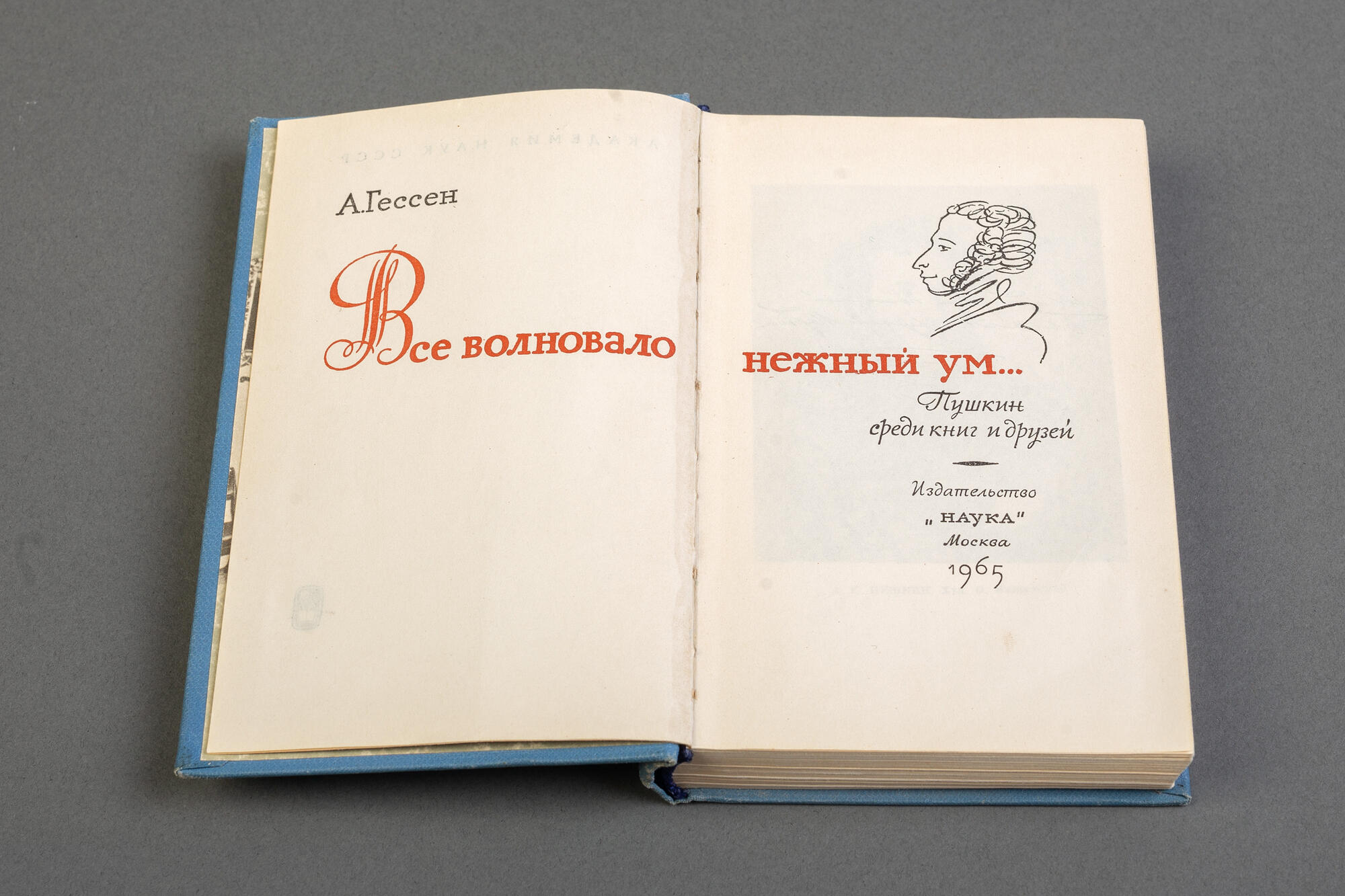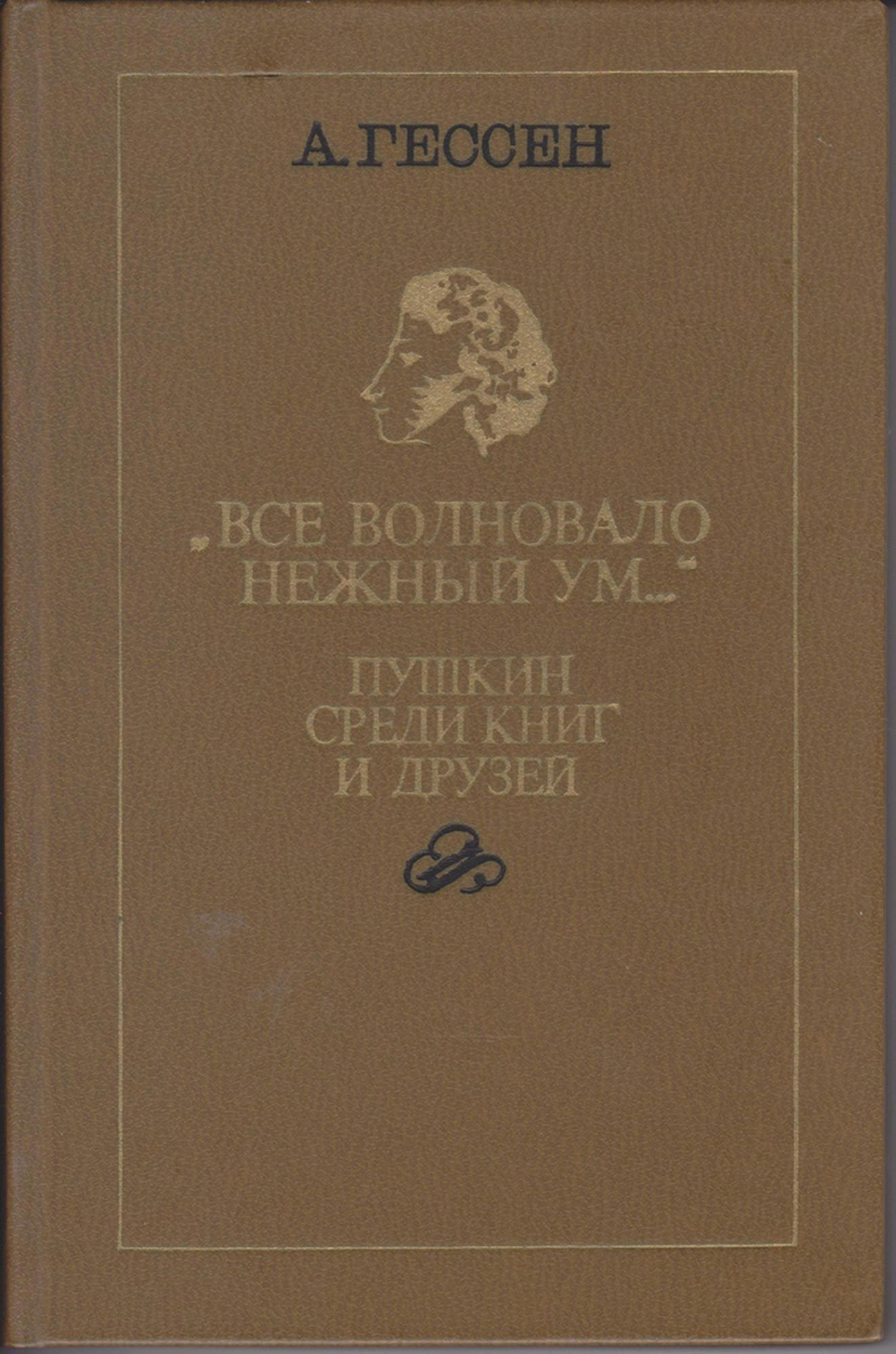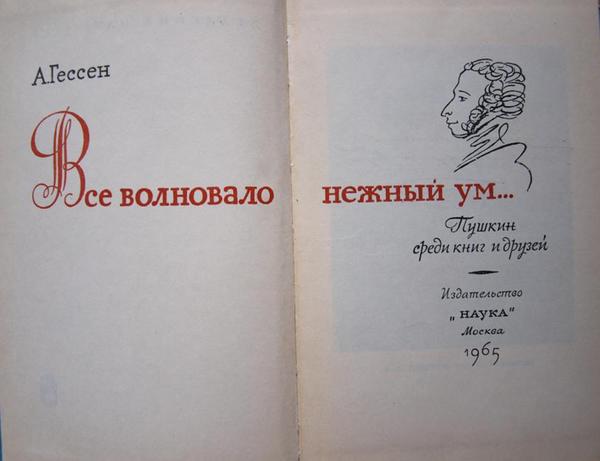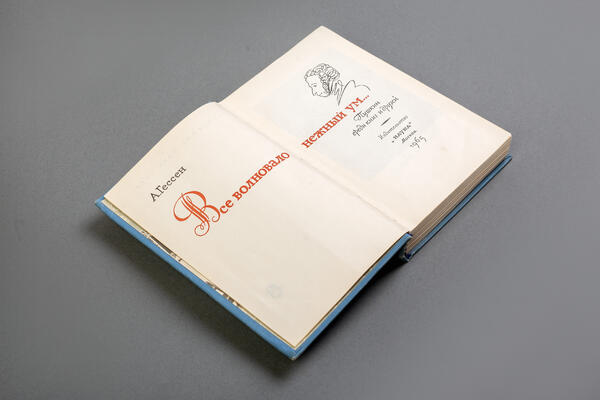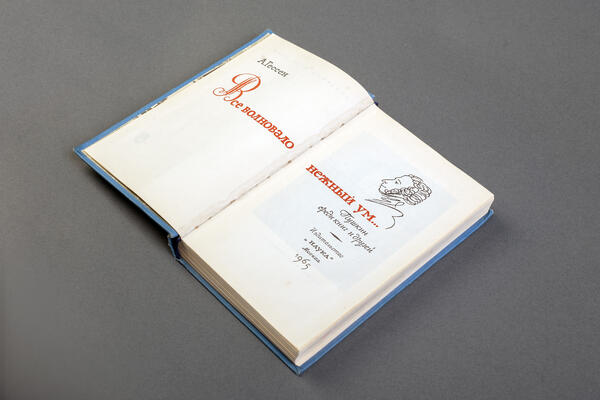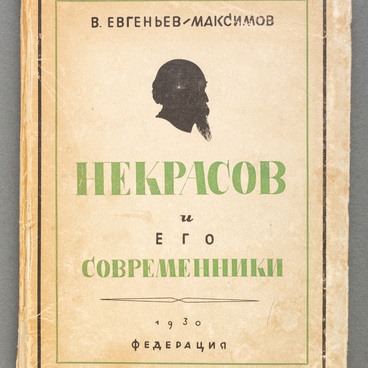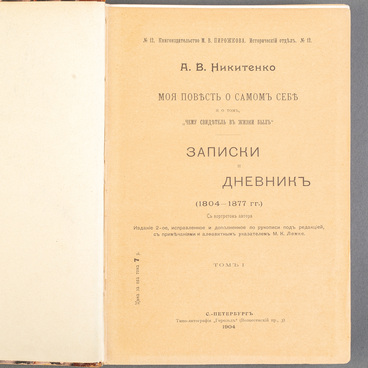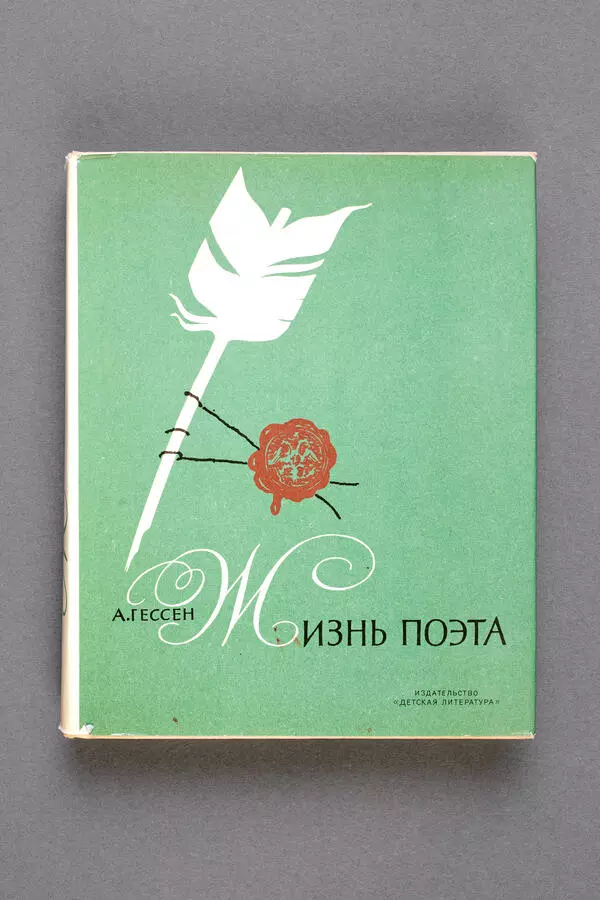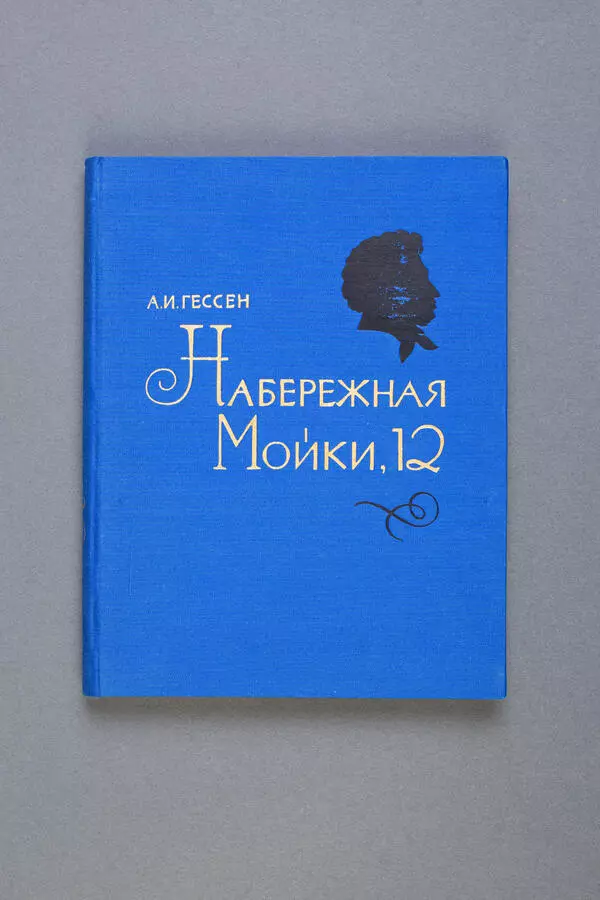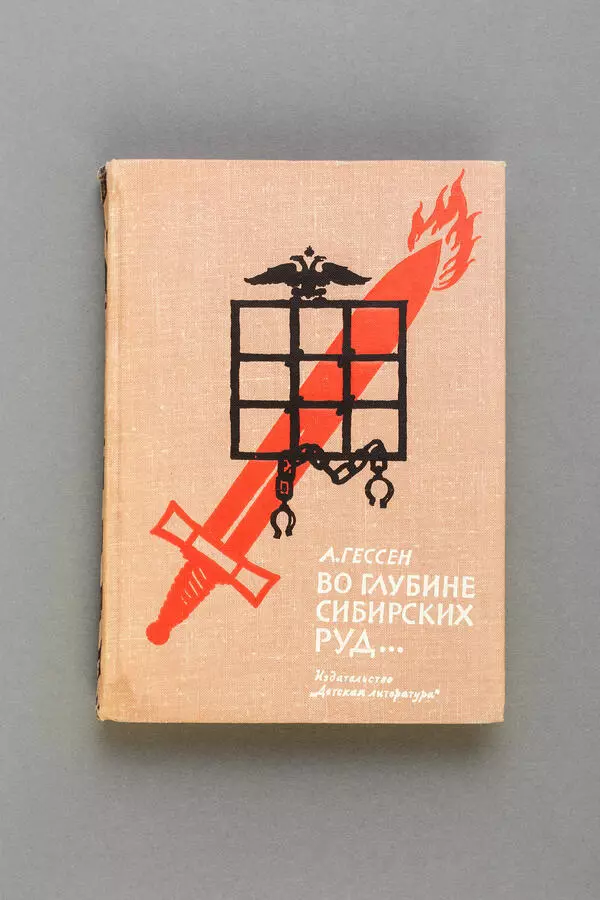Arnold Ilyich Gessen was born in the town of Korocha. His father, the owner of the printing houses in Korocha, Belgorod and Kharkiv, started to involve his son in helping with the work as soon as childhood, which marked the beginning of Arnold’s love for books. The boy read the works of Russian classics printed on book pages while stitching them together.
After graduating from the Aleksandrovskaya Men’s Gymnasium, Gessen became a student of both the Law Department and the Physics and Mathematics Department of Saint Petersburg University. However, journalism became his life’s work: he worked for the “Rossiya” newspaper, then the newspapers “Russkoye Slovo” and “Birzhevyie Vedomosti” (1906–1917), was in charge of publishing the “Izvestiya Revolutsionnoy Nedeli” in the leaflet format (1917), was the editor of the “Novy Mir” magazine, etc.
His first task, connected with Alexander Sergeyevich Pushkin, was to report on the opening of a monument to the poet in Tsarskoe Selo in 1900. The writer recalled that he worked on the report “for a long time and fondly” but, apparently, it was not distinguished by either literary value or sufficient interest in the topic: out of the total eighty lines, only three were published.
At an already elderly age, Arnold Gessen visited Alexander Pushkin’s last apartment on the anniversary of the poet’s death and, feeling the presence of the “forever living” owner in the living room, became interested in the Pushkin studies. He began to examine works of other researchers and Pushkin’s personal library, which included 1,522 titles in 3,560 volumes written in fourteen languages with comments, enthusiastic or caustic remarks left in the margins and notes used as bookmarks. Gessen created several TV shows and a number of scripts for slide films that popularized Pushkin’s legacy.
Gessen published his first book about the poet called “12, Moyka River Embankment. The Last Apartment of Alexander Pushkin” at the age of 83. After that book, there were others devoted to the Decembrist exile, Pushkin’s life in Moscow and other topics. The third published book was called “‘All would excite the tender mind…’ Pushkin Among Books and Friends”. It received the largest number of reviews — more than twenty. After its release, the author was awarded a prize and a diploma by the Znanie Society and in the same year was admitted to the USSR Union of Writers.
After graduating from the Aleksandrovskaya Men’s Gymnasium, Gessen became a student of both the Law Department and the Physics and Mathematics Department of Saint Petersburg University. However, journalism became his life’s work: he worked for the “Rossiya” newspaper, then the newspapers “Russkoye Slovo” and “Birzhevyie Vedomosti” (1906–1917), was in charge of publishing the “Izvestiya Revolutsionnoy Nedeli” in the leaflet format (1917), was the editor of the “Novy Mir” magazine, etc.
His first task, connected with Alexander Sergeyevich Pushkin, was to report on the opening of a monument to the poet in Tsarskoe Selo in 1900. The writer recalled that he worked on the report “for a long time and fondly” but, apparently, it was not distinguished by either literary value or sufficient interest in the topic: out of the total eighty lines, only three were published.
At an already elderly age, Arnold Gessen visited Alexander Pushkin’s last apartment on the anniversary of the poet’s death and, feeling the presence of the “forever living” owner in the living room, became interested in the Pushkin studies. He began to examine works of other researchers and Pushkin’s personal library, which included 1,522 titles in 3,560 volumes written in fourteen languages with comments, enthusiastic or caustic remarks left in the margins and notes used as bookmarks. Gessen created several TV shows and a number of scripts for slide films that popularized Pushkin’s legacy.
Gessen published his first book about the poet called “12, Moyka River Embankment. The Last Apartment of Alexander Pushkin” at the age of 83. After that book, there were others devoted to the Decembrist exile, Pushkin’s life in Moscow and other topics. The third published book was called “‘All would excite the tender mind…’ Pushkin Among Books and Friends”. It received the largest number of reviews — more than twenty. After its release, the author was awarded a prize and a diploma by the Znanie Society and in the same year was admitted to the USSR Union of Writers.
